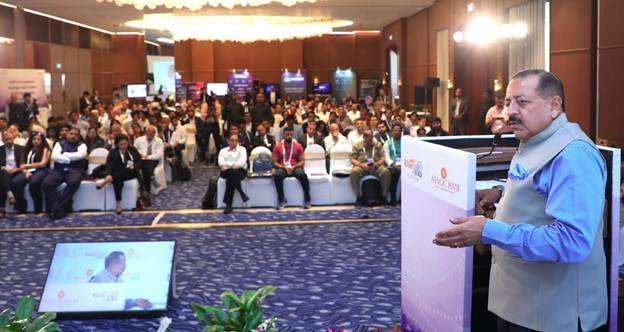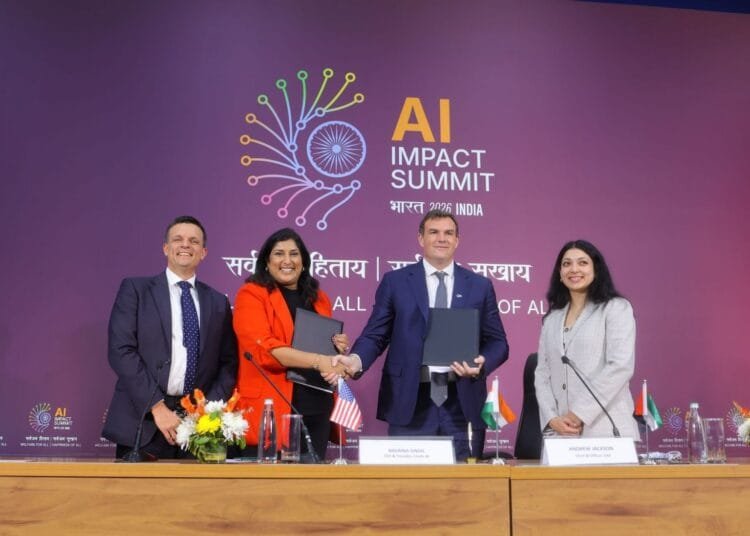Rs.1 lakh cr fund to be boost private sector participation
A dedicated Deep-Tech Fund of Funds will be established to scale up private investment in innovation by the Anusandhan National Research Foundation (ANRF) and implemented by the Department of Science and Technology (DST).
This was announced by Minister of State for Science & Technology Dr Jitendra Singh, who also reiterated that a Rs.1 lakh crore Research and Development Innovation (RDI) fund will be dedicated India’s sovereign technology ambitions driven by the private sector.
To be set up as a Special Purpose Fund under ANRF, the RDI Fund is expected to significantly boost India’s innovation ecosystem, promote industry-led R&D, and advance the vision of Sovereign Technology Development http://meity.gov.in.
He reaffirmed the Government’s unwavering commitment to achieving self-reliance in emerging technologies at the ASSOCHAM Conference on “Sovereign Tech for India’s Digital Transformation”, which was held under the theme ‘Bharat@100’ on 1 Aug.
The Government a has launched the ambitious Rs.1 lakh crore RDI Scheme to transform private sector R&D, particularly in sunrise and strategic sectors. The scheme will provide long-term, low-interest loans and risk capital to support deep-tech, critical technologies, and transformative projects.
The Science and Technology Minister highlighted the government’s bold policy shift towards deeper collaboration with the private sector. Recalling the historic opening up of the Space and Nuclear sectors, once shrouded in secrecy, he noted how these reforms have catapulted India’s space economy to US$8 billion, with projections to touch US$40 billion in the coming years.
“We appeal to the industry to come forward and harness the full spectrum of opportunities opened up by the Government. India’s technological footprint is expanding, and the world is watching,” said Dr Jitendra Singh.
Referring to India’s rapid ascent as the world’s 4th largest economy, Dr Jitendra Singh asserted that the 3rd position is within reach, thanks to a decade of foundational reforms. He cited the ‘Vaccine Maitri’ success story, where India not only developed indigenous vaccines during the pandemic but also shared them globally, showcasing the strength of a ready and responsive industry ecosystem.
Dr Singh also underlined India’s global visibility in advanced domains, citing the example of Indian astronaut Shubhanshu Shukla participating in an international space mission — a testament to India being seen as a credible and equal technology partner on the world stage.
Speaking on Sovereign Technology, the Minister emphasized the urgent need to build indigenous data repositories rather than relying on foreign datasets which often lack the contextual understanding of Indian needs.
He proudly shared the achievement of the Department of Biotechnology in setting up the Indian Biological Data Centre (IBDC)—India’s national repository for genomic data, which includes over 10,000 whole-genome sequences from the Genome India project.
Dr Jitendra Singh drew attention to the emerging startup revolution from India’s heartland, revealing that nearly 50% of Indian startups now hail from Tier-2 cities, with a significant number led by women entrepreneurs. This, he said, is a reflection of inclusive growth and democratization of technology.
He also cited special government programs and dedicated schemes for tribals, women, and youth, aimed at mainstreaming their contribution to the nation’s development.
On the topic of Artificial Intelligence, Dr Jitendra Singh highlighted the National AI Mission and stressed the need for a hybrid model that synergizes Artificial Intelligence with Human Intelligence, cautioning against a blind rush into automation.
The conference witnessed the participation of key national and international industry leaders, including Dr Wolfgang Dreikär, Head of Global Government Affairs at SAP; Sunil Gupta, Co-founder and CEO of Yotta Data Services; and Ranjeet Goswami, Global Head of Corporate Affairs at Tata Consultancy Services (TCS). Fiinews.com










